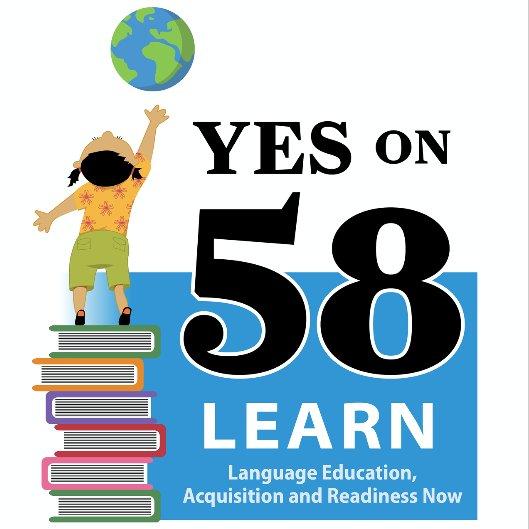Proposition 58 is on the ballot this year in hopes of repealing Proposition 227, a decades old law established in 1998 which restricts what methods can be used to teach English to non-English speakers.
Under Proposition 227, speakers of foreign languages must be taught in classes where only English is spoken. Before entering these English-only classes, non-native speakers are required to take a year of intensive english instruction. Many people recognize inefficacies within the programs and hope Proposition 58 will ensure brighter futures for young immigrants and foreign students of California.
Under Proposition 58 English-learners will no longer be required to take a year of intensive English. Instead, schools will have the power to structure their language programs according to what they think is most effective. With this, parents will have more say in what they want for their children. For many schools, this will mean offering classes with bilingual instruction.
Bilingual instruction will help increase the chances of success among young students trying to learn English. Instead of being thrown into intensive English-only classes, students will be able to learn and transition with ease. Bilingual instruction will allow students to ask questions and interact more easily with their teachers. With their native language as a security blanket, students will feel more confident in their learning abilities.
According to a demographics report by Stanford University, 40 percent of California’s population speaks a language other than English at home. The report also states only half of the foreign-born Spanish-speaking population of California speaks English “well” or “very well.”
It’s no surprise that much of California’s population speaks a foreign language. According to the California census, 32 percent of the population was made up of Hispanics and Latinos as of 2010. Mexicans made up about 25 percent of the population and Asians made up 12 percent. With such diversity, Proposition 58 has the power to help countless students.
Not only is California a melting pot of culture, but it’s continuously growing. California was home to more than 10 million immigrants as of 2011, more than any other state.
With such diversity and so many people immigrating to California each year, language programs to better serve the people of the state are long overdue. What worked in 1998 may no longer work for the current generation. Times are constantly changing and so should legislation. The school system needs to cater to the diversity of its students.
Supporters of Proposition 58 make it clear that bilingual instruction isn’t meant to prevent children from learning English. Nor will the proposition make bilingual instruction mandatory.
Instead, Proposition 58 hopes to enhance and accelerate the rateEnglish is learned by giving schools the power to create programs that work. With the ability to create more up-to-date programs with more effective teaching methods, English-learners have a greater chance of becoming fluent in English at a much quicker rate.
With Proposition 58, students will no longer be thrown into overwhelming English-only classes or taught by English-only instructors.
Instead students will develop their language skills with ease and will be emerged in an environment more suitable for learning.
Proposition 58 will get rid of the restrictive and ineffective methods currently set out by Proposition 227 and will allow a more promising future for thestudents of California. The current legislation is outdated and no longer serves the needs of the current population. Proposition 58 will help California continue to move in the right direction.
Categories:
Prop 58: A long overdue educational update
Taylor Berghoff, Staff Writer
•
October 16, 2016

exc-5803d6f8c534a52fce08c583
Donate to Sonoma State Star
Your donation will support the student journalists of Sonoma State University. Your contribution will allow us to purchase equipment and cover our annual website hosting costs.
More to Discover


































